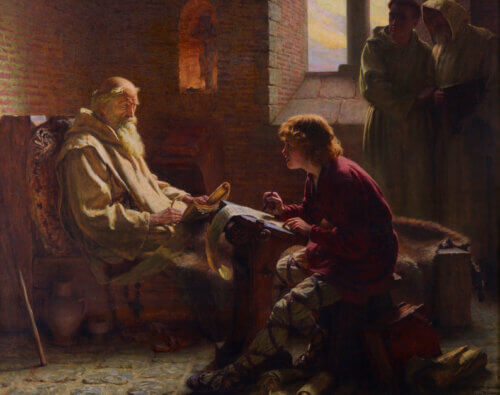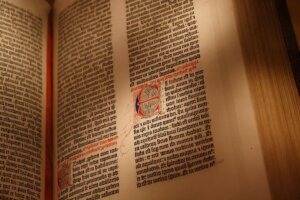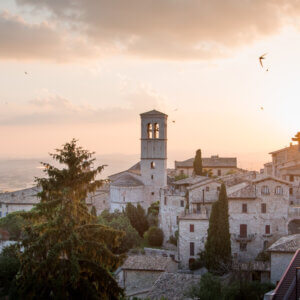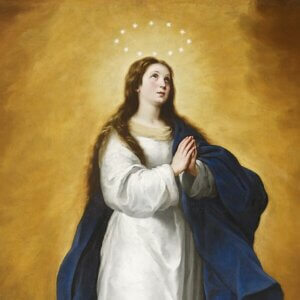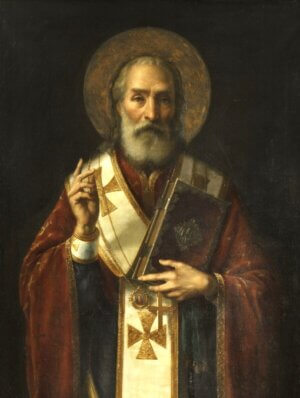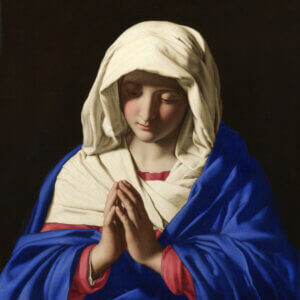You probably haven’t heard of Jarrow. It is the capital of nowhere, the center of modern-day nothing, on the other side of the river from the much-better-known Newcastle on the northeast edge of England. Neither of these locales is on the itinerary of the average UK tourist, who is generally more drawn to places like London and Oxford.
But this little town is a giant in the pages of history. It was once part of an epicenter of European faith and scholarship—and one of its most gifted scholars is counted among our Catholic saints.
The Benedictine monasteries of St. Peter (in modern-day Sunderland, seven miles south of Jarrow) and St. Paul (in Jarrow) were really one monastery in two locations, collectively called Wearmouth-Jarrow. Founded by St. Benedict Biscop in the 7th century, this monastery became one of the most important centers of European scholarship, learning, and culture, with one of the finest libraries anywhere in Europe.
The monastery buildings were among the first stone buildings created in Anglo-Saxon England since the Romans. Some of the oldest stained glass in the world is preserved in the church at St. Paul’s. The oldest surviving version of the Latin Vulgate—the Codex Amiatinus—was produced at Wearmouth-Jarrow.
The monastery’s shining star was Jarrow native St. Bede the Venerable, whose feast we celebrate today. Entrusted to St. Benedict Biscop at age seven, he spent most of his life at the monastery. From inside its stone walls, his learning and the scholarship of the monastery at large became famous throughout the continent.
The Last Chapter by James Doyle Penrose shows St. Bede completing his translation of John’s Gospel on his deathbed
Bede’s seminal work, The Ecclesiastical History of the English People, is a critical resource for early English history. He wrote many commentaries on Scripture and popularized the method of dating historical events relative to the birth of Christ using the now-ubiquitous term Anno Domini (A.D.). He translated the Gospel of John into Old English. He was, in short, one of the most brilliant scholars of his era, earning the title the “Father of English History.”
He was declared a Doctor of the Church by Pope Leo XIII, the only native Briton to receive this title.
Learn to pray as St. Bede and his fellow monastics did with Oremus: A Treasury of Latin Prayers! With side-by-side Latin and English translations, Oremus allows Catholics to experience anew—or for the first time—the beauty and rich spiritual heritage of the language used for almost two-thousand years in the scriptures, liturgy, and prayers of the Church. Order yours today from The Catholic Company!
